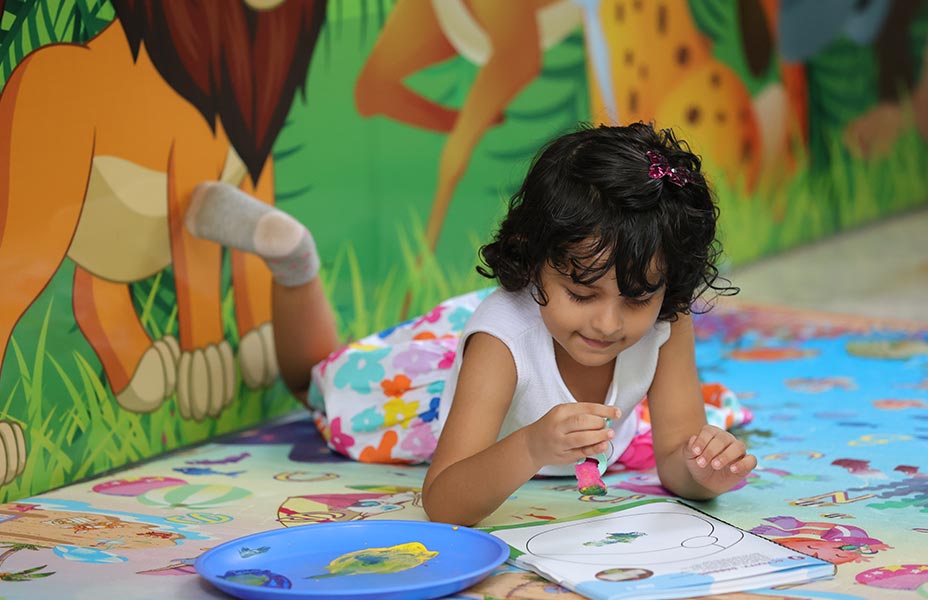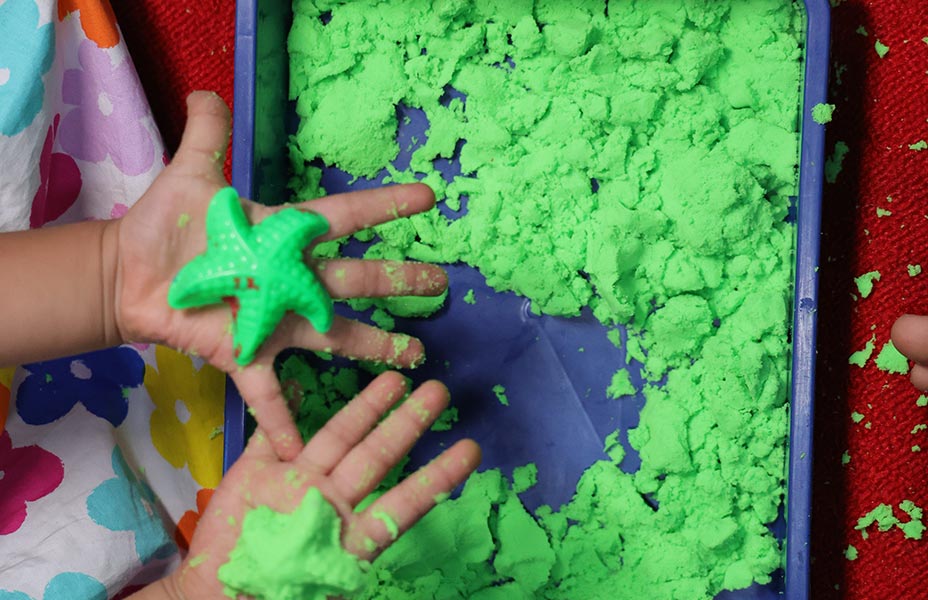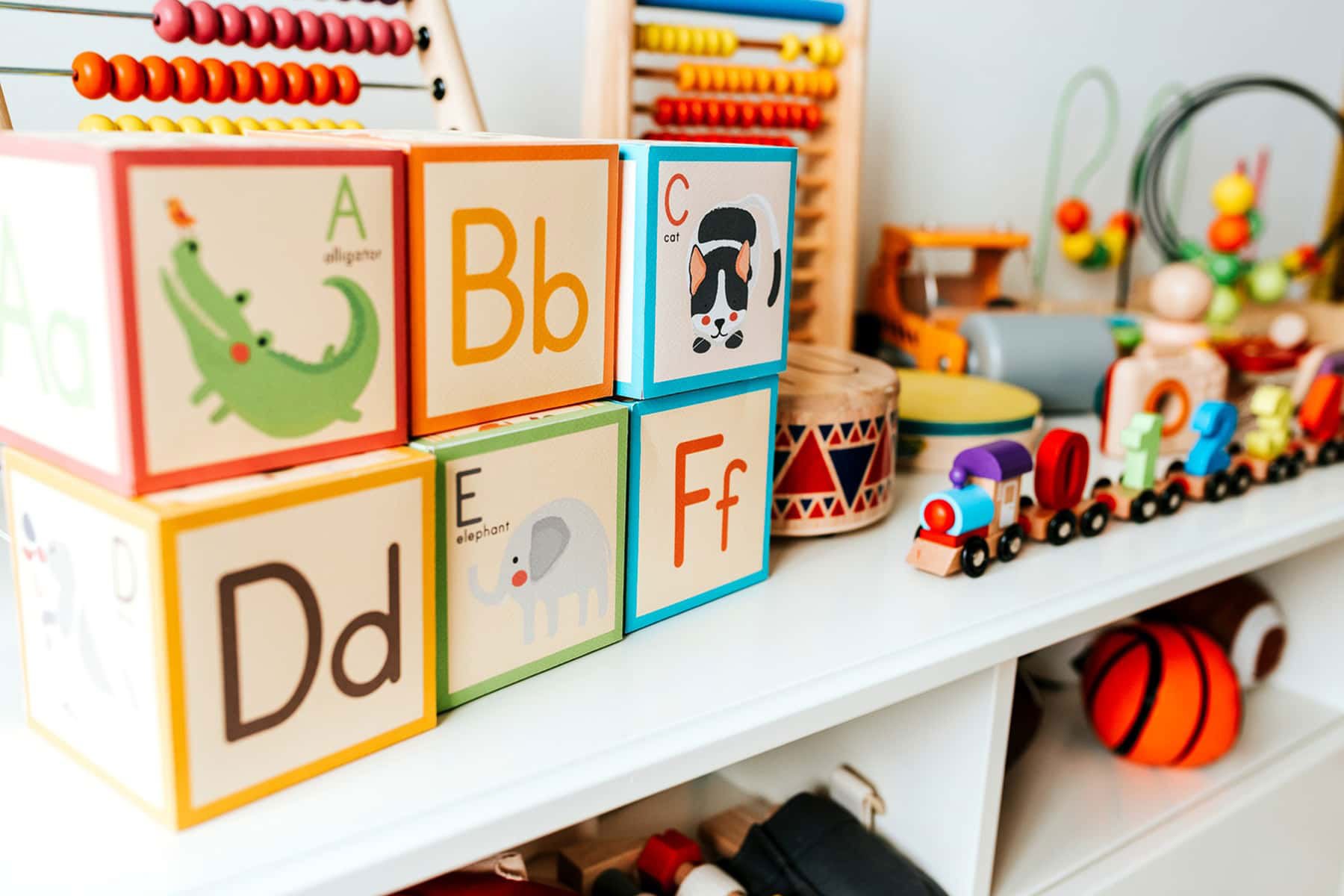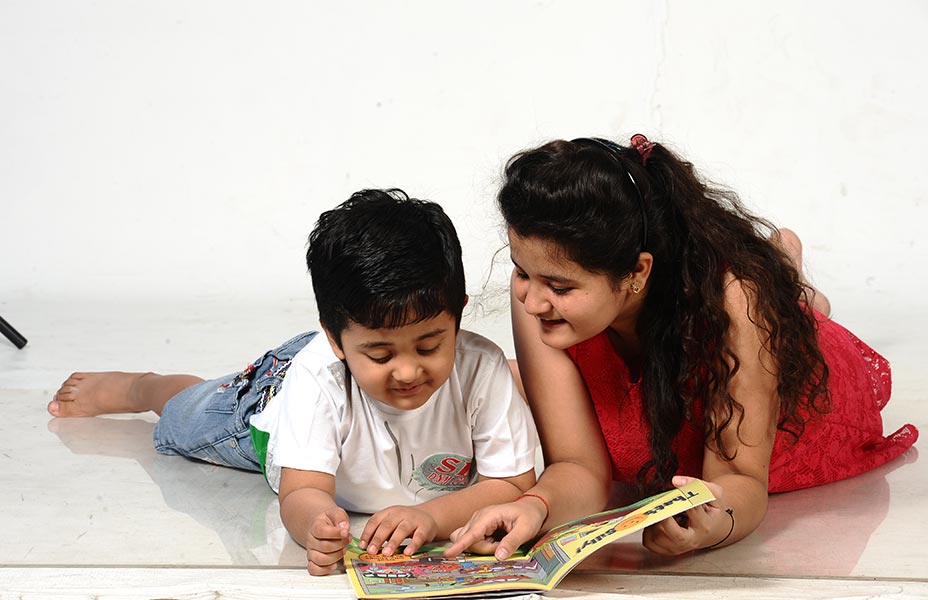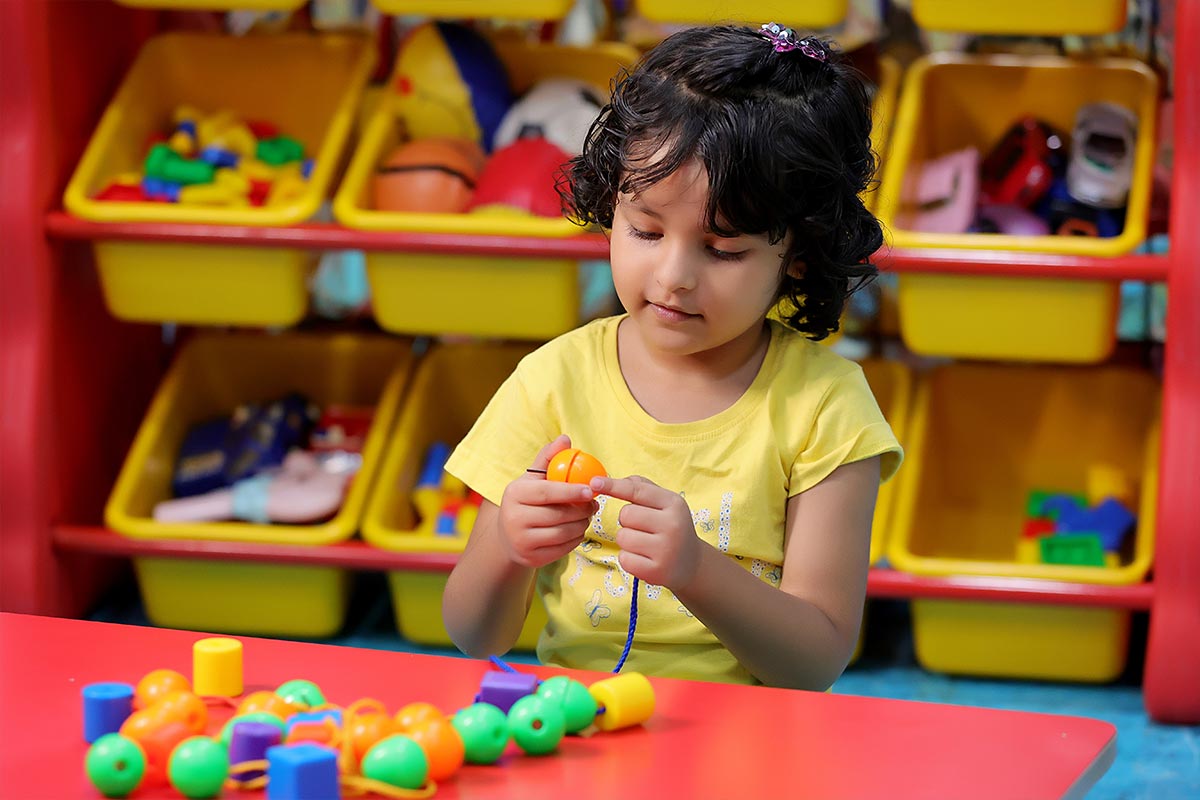Learning Disciplines
- Home
- Learning Disciplines
Fine Motor Activities
Activities that use small muscles specifically of hands/ fingers to pick up small objects, hold spoons, etc.
Eye-hand Coordination
Activities that develop curiosity within the child so that their movements become more purposeful.
Speech And Language Activities
Activities that support the child’s ability to communicate, express and understand feelings and emotions.
Gross Motor Activities
Activities that help children use large muscles to make them coordinate and control body movements.
Cognitive Activities
Activities that encourage problem solving, thinking, exploring and understanding the world around them.
Theme Based Activities
Lesson plans with activities designed according to different themes to be taught monthly.
Magic Everyday
Champak’s Enrichment Kit is made so that you and your little one can experience Magic Everyday through lessons which are designed to engage your child and bolster their linguistic, physical, social, emotional and cognitive developmental domains.
- Games: DIY games, outdoor and indoor games which teach children sportsmanship as well as develop gross motor skills
- Stories: Simple, easy-to-read stories that will take children on a journey as they learn more about the world around them
- Songs: Music plays a vital role and activates both the right and left sides of the brain. Our curriculum is filled with catchy tunes little ones will love
- Rhymes: Action, lyrics and rhythm which entertain children and also enhance learning
- Worksheets: The worksheets are engaging and child-friendly with clear instructions to parents which are designed to empower them and also encourage learning
- Field trips: To provide the child hands-on experience of the curriculum designed, the worksheet also includes field trips as part of the program.
- Festivals and Celebrations: The curriculum is designed to help children develop not only IQ (intelligence quotient) and EQ (Emotional quotient) but also SQ(Spiritual quotient)
- Culinary classes: They will learn more about the world around them through cooking and assembling food.
- Art & Craft: Give your little ones the chance to explore art with activities like dabbing, colouring, paper-folding, origami, no-scissor crafts, pasting and crumpling.
- Pre-Math terms: Let them learn about concepts like big, small, heavy, light, up, down, front, back
- Socio-emotional activities: Little ones will practise sharing, taking turns and expressing feelings through lessons in our worksheets.

The Science Behind The Magic
Repetition – poems, songs and prayers (Rhyme time, conversation and repetition of concepts learned)
Repeating activities is the best way to maximise learning and have fun. All activities in the curriculum are revisited as children learn when any activity is repeated because the learning is reinforced in their conscious and subconscious memory. In early childhood, repetition forms the basis for learning, skill development and accomplishment. Think about when a child first learns to walk. They begin by crawling, then repeat the action of standing and toddling, before they master the ability to walk. A child must first learn fundamental skills before they can acquire speed, increased confidence, and mastery. It is through repetition that possibility becomes ability.
Problem-solving- (games, puzzles, craft activities)
Toddlers learn to problem-solve based on how they sense, think about and understand their world. Being able to solve problems is critical for development at this stage. The curriculum allows them to have hands-on exploration of their world. Thus, they have the opportunity of seeing similarities between old and new situations and applying previous learning in new circumstances.
Pretend play (puppet show, music, rhymes)
Pretend play, also known as symbolic, imaginative or dramatic play (‘make-believe’) teaches children that one thing can be something else. This represents a quantum leap of understanding, which is essential in the adult world. When all is said and done, numbers and words are just marks representing different languages. In pretend play, your child can be anyone or anything! The freedom! The fun! This also teaches your child to be courageous and curious as well.
Imitation (storytelling)
Young children love to copy what Mom or Dad are doing. You can encourage this by buying some child-sized tools like a little broom, shopping trolley, or hammer. Then when it’s time for your household tasks, your child can help too. Encourage them to ‘sweep’ the floor with their broom or ‘fix’ the door handle with their screwdriver.
Exploring the environment (Field trips)
Exploring the inside and outside worlds – with supervision, of course – is important for toddlers' emotional, social and physical development. They learn more about the world and how it works. It's one thing to see an orange, but it's another to hold it in your hand, feel its cool, smooth surface, smell its fragrance, maybe even taste it. Their development is all the better if you ask questions like: What colour is it? Is it big or little?
Repeating activities is the best way to maximise learning and have fun. All activities in the curriculum are revisited as children learn when any activity is repeated because the learning is reinforced in their conscious and subconscious memory. In early childhood, repetition forms the basis for learning, skill development and accomplishment. Think about when a child first learns to walk. They begin by crawling, then repeat the action of standing and toddling, before they master the ability to walk. A child must first learn fundamental skills before they can acquire speed, increased confidence, and mastery. It is through repetition that possibility becomes ability.
Problem-solving- (games, puzzles, craft activities)
Toddlers learn to problem-solve based on how they sense, think about and understand their world. Being able to solve problems is critical for development at this stage. The curriculum allows them to have hands-on exploration of their world. Thus, they have the opportunity of seeing similarities between old and new situations and applying previous learning in new circumstances.
Pretend play (puppet show, music, rhymes)
Pretend play, also known as symbolic, imaginative or dramatic play (‘make-believe’) teaches children that one thing can be something else. This represents a quantum leap of understanding, which is essential in the adult world. When all is said and done, numbers and words are just marks representing different languages. In pretend play, your child can be anyone or anything! The freedom! The fun! This also teaches your child to be courageous and curious as well.
Imitation (storytelling)
Young children love to copy what Mom or Dad are doing. You can encourage this by buying some child-sized tools like a little broom, shopping trolley, or hammer. Then when it’s time for your household tasks, your child can help too. Encourage them to ‘sweep’ the floor with their broom or ‘fix’ the door handle with their screwdriver.
Exploring the environment (Field trips)
Exploring the inside and outside worlds – with supervision, of course – is important for toddlers' emotional, social and physical development. They learn more about the world and how it works. It's one thing to see an orange, but it's another to hold it in your hand, feel its cool, smooth surface, smell its fragrance, maybe even taste it. Their development is all the better if you ask questions like: What colour is it? Is it big or little?
DON'T MISS OUT!
Interested in good Homeschool curriculum for your child ? The Champak Enrichment Kit is the right decision!

